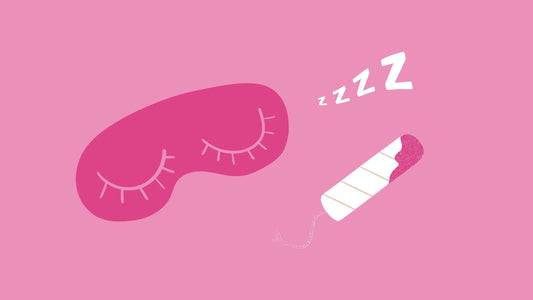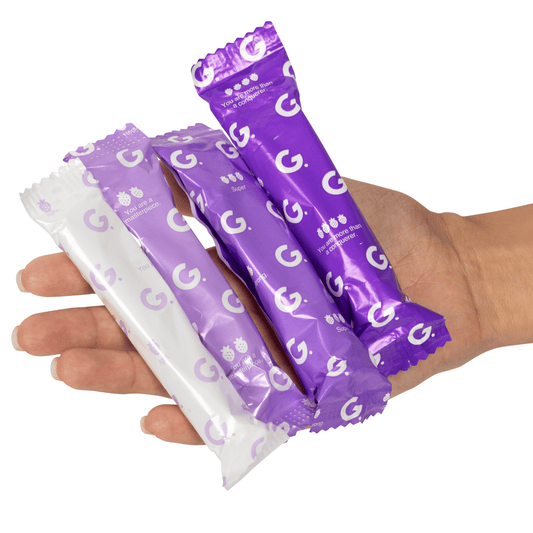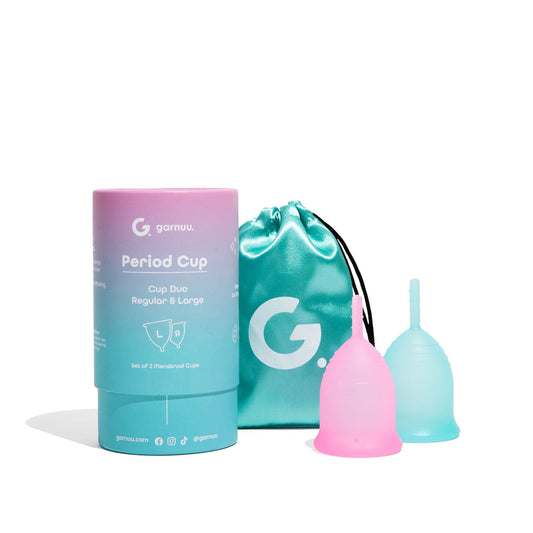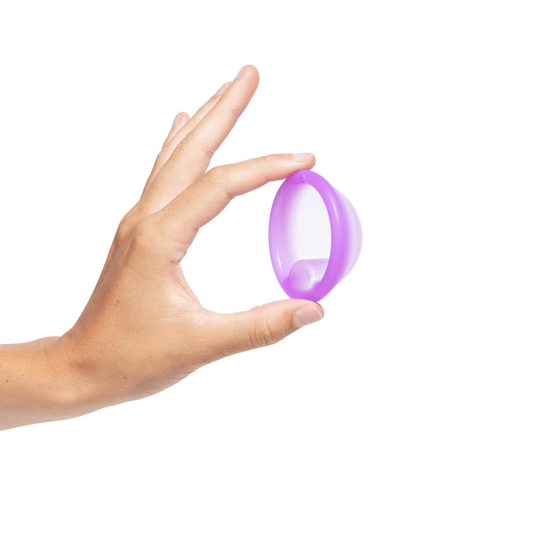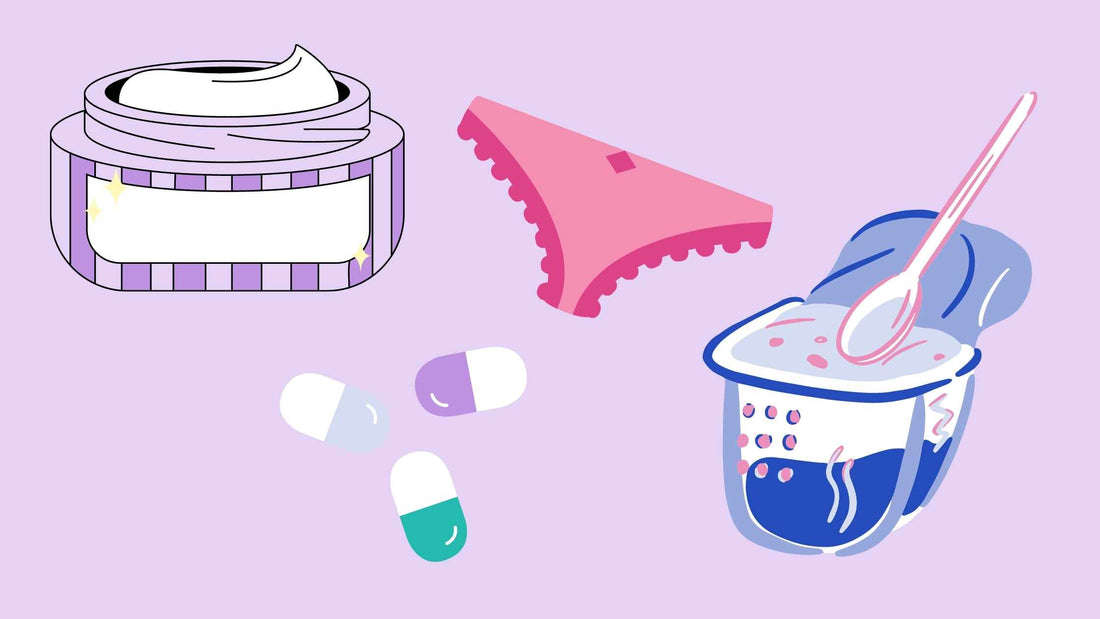
Yeast Infections: Everything You Need to Know
Share
If you've ever had a yeast infection, you know just how uncomfortable and embarrassing they can be. But what are yeast infections, exactly? Where do they come from? And more importantly, how can you treat them? In this blog post, we will answer all of your questions about yeast infections. We'll discuss the causes of yeast infections, the symptoms of yeast infection, and the best ways to treat them. So, if you're curious about yeast infections or need answers, read on!
What are yeast infections?
A vaginal yeast infection is a vaginal infection caused by a type of fungus called Candida. Candida Albicans is a type of yeast that naturally occurs in the body, and it's usually kept in check by other bacteria and microorganisms. However, sometimes the balance of organisms in the body can be thrown off, and Candida can begin to grow out of control. When this happens, you may develop a vaginal yeast infection, which could also be defined as vaginal candidiasis.
How can Candida Albicans (or yeast) overgrow?
Antibiotics
There are a few different things that can cause Candida to overgrow. One is long-term antibiotic use, which kill off the good bacteria in your body along with the bad bacteria, causing an imbalance in Candida. This can leave you vulnerable to a yeast infection.
Weakened immune system
Another cause for Candida overgrowth is having a weak immune system, which can allow Candida to take over due to imbalances in healthy gut bacteria.
High carbs and refined sugars
In addition, a diet that is high in processed carbohydrates or refined sugars can cause Candida overgrowth. This is because these foods feed the yeast in your body, causing it to grow out of control.
Pregnancy, birth control, or hormonal changes
Finally, another cause of Candida overgrowth is hormonal imbalances. Pregnant women or women who have been on birth control for years are susceptible to yeast infections because of the hormonal changes in their bodies. When estrogen levels are high, this can promote the growth of yeast in the vagina, potentially causing a yeast infection.
Yeast infection symptoms
There are various symptoms of a yeast infection. The most common symptoms include:
- Itching or burning in the vulva which is the external part of the vagina
- Pain during intercourse
- Redness and swelling of the vulva
- Burning sensation when urinating
- Thick white vaginal discharge that looks like cottage cheese
You may also experience other symptoms that are less common but more severe, and if it comes to that point, visit a medical professional immediately.
We at Garnuu know it might be dicey to search what a yeast infection looks like, so we will save you from Google search images and instead explain what you might see in your panties...
When you have a yeast infection, you will very likely experience thick, white discharge, and it may have a cottage cheese-like consistency. You will also likely find more discharge than normal in your panties.
With that said, don't worry too much- yeast infections are very common and are usually easily treatable. For remedies, solutions, or treatment options, continue reading!
How long do yeast infections last?
A typical yeast infection can last anywhere from a few days to a week. However, if your symptoms are severe, you may have a more serious infection. If your symptoms last more than a week and aren't improving, seek new solutions.
Are yeast infections contagious?
Yeast infections are not contagious unless sexually transmitted. You can't catch a yeast infection from someone else, and you can't give one to anyone else either.
However, it is possible for yeast infections to be passed on through sexual contact, and men can get them, too! If you have a yeast infection, you should abstain from being sexually active until the infection has cleared up.
Do yeast infections smell?
A yeast infection by itself doesn't typically have a smell. However, if the infection is left untreated, it can lead to a bacterial infection, and that might produce a bad odor. If you're concerned about the way your vagina smells, it's always best to consult with a medical professional.
Yeast infections in men
It's not just women who can get yeast infections. Men can get them too, although it's much less common. The symptoms of a yeast infection in a man can include:
- Itching or burning on the penis
- Burning sensation while urinating
- Redness and swelling of the head of the penis
- Sores, cracking, or bleeding on the foreskin of the penis
- White, thick discharge from the penis
For remedies and solutions, keep scrolling.
Yeast infection treatment
If you think you might be experiencing a yeast infection for the first time, or your symptoms are not getting better after over-the-counter medication, consider consulting a medical care professional. Yeast infections are common and can be treated a few different ways.
The most common form of yeast infection treatment is anti-fungal creams or suppositories that can be bought over the counter at any drug store. These include products like Monistat and Gyne-Lotrimin.
You can also try home remedies, like yogurt, to help soothe the symptoms of a yeast infection. However, home remedies are not as effective as medication and should only be used in mild cases.
If you're experiencing severe symptoms or your yeast infection is not responding to over-the-counter medication, you may need to be prescribed anti-fungal medication by a medical professional.
There is some evidence to suggest that probiotics may help prevent and treat vaginal yeast infections. Probiotics are live micro-organisms that can be consumed in the form of foods or supplements. They are often called "good" bacteria because they help keep the gut healthy. If you're interested in trying probiotics, you can find them in many supermarkets or health food stores.
Yeast infection at-home remedies
If you're experiencing mild yeast infection symptoms, there are a few things you can do at home to help ease the discomfort:
- Wear loose, breathable clothing. Cotton underwear is best.
- Avoid douching or using perfumed sprays on your vagina.
- Don't use scented soaps or bubble baths.
- Avoid using vaginal deodorants.
- Use plain, unsweetened yogurt on your vagina.
- Stay away from tight-fitting pants and jeans.
- Wear pantyhose with a cotton crotch.
- Change out of wet clothing, like swimsuits or workout clothes, as soon as possible.
- Don't wear underwear to bed.
Try some of these foods!
Take probiotics because they may help maintain the levels of yeast and bacteria in your body.
Add garlic to your diet because it has anti-fungal properties.
Consume apple cider vinegar because it can help restore the acidity in your vagina. It helps fight against bacteria and fungi and helps restore the pH levels of your vagina to help prevent further growth of yeast.
Eat Greek yogurt every day because it contains live cultures and natural sources of probiotics that can fight yeast infections.
Make sure you get enough vitamin C so that your immune system is strong and can the infection off!
Boric acid vaginal suppositories have shown to be effective against yeast infections, although it should only be used under the care of a medical professional.
Tea tree oil capsulated and taken orally or as a vaginal suppository is another possible home remedy for yeast infections. Like vinegar, it has anti-fungal properties and has successfully treated yeast infections in the past.
Yeast infection medicine options
There are a number of different medicines available for yeast infections, including:
- Fluconazole (Diflucan)
- Miconazole (Monistat, Gyne-Lotrimin)
- Tioconazole (Vagistat)
These medicines can be taken in the form of a pill, cream, or vaginal suppository. Some are available over the counter, while others require a prescription from a medical professional.
Yeast infections aren't fun, but there are many solutions and things you can do to ease your symptoms. Garnuu cares about women's health and wants to make sure you're as comfortable and informed as possible! Stay tuned for more blog posts like this one. Thanks for reading!
Do you have any other questions about yeast infections? Let us know in the comments below and we'll do our best to answer them!
Happy yeast infection free days! :)
-Garnuu Team



